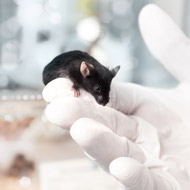Project to reduce use of animals in vaccine production

The project could significantly reduce the use of animals in routine vaccine production.
A project which could significantly reduce the use of animals in routine vaccine production will unite some of Europe’s largest pharmaceutical companies.
Funded by the Innovative Medicines Initiative (IMI2), the VAC2VAC project aims to provide data to support the ‘Consistency Approach’ for quality control of vaccines. Currently, quality control for final products relies on in vivo methods.
A host of organisations from veterinary and human vaccine industry are collaborating in the project, including Zoetis, GlaxoSmithKlein (GSK) and Merial.
To achieve their goal, the organisations will develop, optimise and evaluate physicochemical and immunochemical methods, cell-based and other assays for routine batch quality, safety and efficacy testing of vaccines. This will be done in collaboration and consultation with regulatory agencies.
Noting the importance of this project, Denis Lambrigts from GSK said: “The VAC2VAC project provides a unique platform to support the transition away from in vivo batch release testing for vaccines.
“It brings together both the human and veterinary pharmaceutical industry along with academia and regulators, to build a platform for the development, validation and regulatory acceptance of alternative approaches.
“For industry this is a very positive One Health approach to the challenge of replacement of the long established in vivo test methods and all companies involved are committed to the success off this project.”
Prof. Conrad Hendriksen from Intravacc, one of the key promoters of the project, added: “VAC2VAC takes into account both vaccine safety and animal welfare.
“It will allow us to move away from the traditional paradigm of vaccine batch release testing and to accelerate the introduction of a new paradigm based on innovative non-animal techniques”.
The project is expected to end in 2021 at a total cost of €15.98 million.



 The latest
The latest